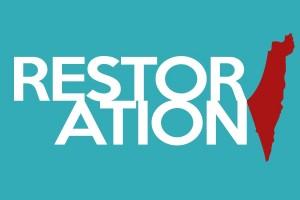“The desolate land shall be tilled instead of lying desolate in the sight of all who pass by. So they will say, ‘This land that was desolate has become like the garden of Eden; and the wasted, desolate, and ruined cities are now fortified and inhabited.’ Then the nations which are left all around you shall know that I, the LORD, have rebuilt the ruined places and planted what was desolate. I, the LORD, have spoken it, and I will do it.” (Ezekiel 36:34-36)
Israel’s countryside, whether it be in the lush green hills of the north or the dust swept regions of the south, is dotted with scores of villages and collective communities. These rural communities have played a central role in resurrecting the land of Israel from the desolation and neglect of the past centuries, and in defending it effectively against foreign and domestic threats.
Israel is the one place in the world where the “experiment of communism” was successful. This is ascribed to socialism’s application on a very small scale within communal settlements known as kibbutzim.
The kibbutz movement was an essential endeavor, especially in the years leading up to the rebirth of the state. Without these communal farms, the nation would have been unable to re-cultivate the land or defend itself. The experiment paid off. Within a few short years, the rural agricultural sector in Israel had succeeded in reclaiming vast areas of the land that had long before succumbed to encroachment by desert and swamp.
This miracle was made possible by the readiness of the rural population – those early settlers – who set aside their personal ambitions and worked in a collective setting for the good of the land and the nation.
Changing realities, and especially the ascendancy of industrialization and the high-tech revolution, have resulted in a number of major changes being made in the kibbutzim. They, along with the somewhat differently structured moshavim, made an indelible mark on the rebirth of Israel and remain an integral part of the Israeli nation. Their tranquil environs provide a peaceful alternative to Israel’s bustling and hectic city life.


